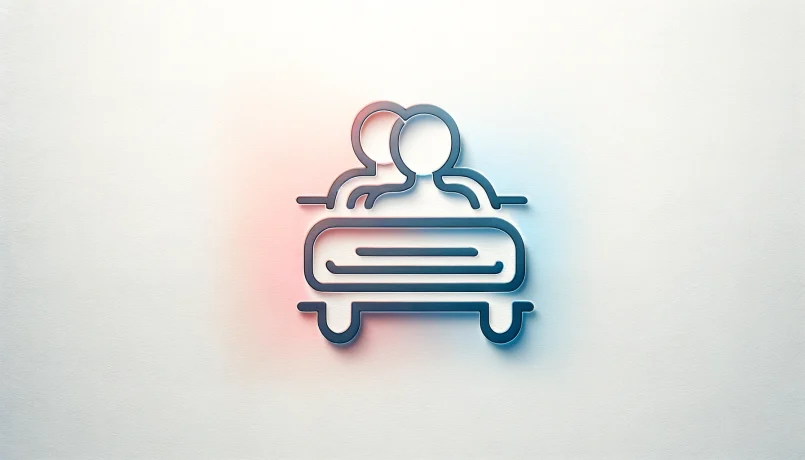
Ridesharing services like Uber and Lyft revolutionize transportation, but passengers face complex legal challenges after an accident. Learn your rights and take the necessary steps to secure fair compensation.
by LawInc Staff
May 13, 2024
Ridesharing services like Uber and Lyft have transformed transportation. However, if you’re injured as a passenger in a rideshare vehicle accident, maneuvering through the legal complexities of insurance coverage and liability can prove daunting. This guide breaks down your rights and the steps to take after a crash to ensure just compensation for your harms.
1. Understanding Rideshare Accident Dynamics
-
- Driver Status During Crash: Whether the rideshare app was on and a passenger was being transported shapes insurance coverage.
- Fault Determination: Proving the Uber/Lyft driver’s actions primarily caused the accident strengthens your case.
- Unique Risk Factors: Distracted driving from app usage, driver fatigue, and poorly maintained vehicles elevate crash risks.
- Passenger Safety Duties: Rideshare companies must thoroughly vet drivers and promptly respond to complaints.
Examples:
-
- George was severely injured when his Uber driver, distracted by the app, rear-ended another vehicle at high speed.
- video evidence proved Tina’s Lyft driver aggressively cut off a truck, forcing it to swerve and crash into her.
- Mechanical failure from neglected maintenance caused Jeffrey’s rideshare driver to lose control and collide with a median.
- Amy’s assailant had a history of violence Lyft failed to detect during driver screening, leading to her assault.
How to Proceed:
-
- If you’re hurt in a rideshare crash, first seek any needed medical attention, then gather information like photos, the driver’s name and contact, and witness statements.
- Report the accident in the rideshare app and to the police to establish an official record.
- Consult an experienced rideshare accident attorney to investigate the crash, determine all liable parties, and pursue your case.
- Avoid discussing fault or signing anything from insurance companies without legal guidance to protect your rights.
FAQs:
-
- Are rideshare accident claims more complex than typical crashes? Yes, multiple insurance policies and liability grey areas require expert investigation.
- Who is responsible if my Uber/Lyft driver causes a crash? The rideshare company’s insurance should cover your injuries if the driver was logged into the app.
- What if another motorist hits my Uber/Lyft? You may need to file claims with the at-fault driver’s insurer and potentially the rideshare policy.
- How soon after a rideshare accident should I contact an attorney? Immediately – evidence degrades quickly and legal deadlines apply.
2. Insuring Your Rideshare Accident
-
- Rideshare Policy Limits: Uber and Lyft carry $1 million liability coverage, but certain conditions must be met to apply.
- Driver’s Personal Auto Policy: This insurance is primary if the rideshare app was off during the crash.
- Uninsured/Underinsured Motorist (UM) Coverage: Rideshare UM policies compensate victims of crashes caused by uninsured drivers.
- Passenger’s Personal Policies: Your health insurance or Medical Payments policy may contribute to medical bills.
Examples:
-
- Uber’s $1 million policy covered Lisa’s extensive injuries because she was hurt while on an active Uber ride.
- An off-duty Lyft driver struck pedestrian Neil, so the driver’s personal auto policy applied primarily instead of Lyft’s.
- A hit-and-run driver seriously injured Maggie in an Uber, but the rideshare UM policy compensated her.
- Terry’s personal health insurance paid his initial hospital bills from a rideshare crash before securing Lyft insurance compensation.
How to Proceed:
-
- Identify all relevant insurance policies with the help of a knowledgeable rideshare accident lawyer.
- Have your attorney communicate with the insurers to establish the appropriate coverage for your injuries.
- Your lawyer can compel disclosure of important evidence like rideshare driver logs and app data.
- Let your legal team handle correspondence and negotiations with insurance representatives so you can focus on recovery.
FAQs:
-
- Will Uber or Lyft’s insurer cover all my medical bills? Their policies have limits, so severe injuries may exceed coverage maximums.
- Who pays if my Uber/Lyft driver wasn’t at fault? The other motorist’s insurer is primary, but the rideshare policy may cover excess damages.
- Can I collect from my own auto insurance after a rideshare crash? Your Personal Injury Protection may apply after exhausting the rideshare policy.
- What if the insurance money offered doesn’t fully compensate my injuries? You may need to file a lawsuit to pursue complete damages.
3. Proving Rideshare Accident Liability
-
- Duty of Care Violations: Demonstrate how the rideshare driver breached their responsibility to operate safely.
- Negligent Actions: Speeding, distraction, fatigue and other reckless behaviors create liability.
- Defective Vehicle Components: If faulty parts contributed to the crash, a product liability claim may apply.
- Inadequate Driver Vetting: Rideshare companies may be liable for crashes caused by unfit drivers they should have screened out.
Examples:
-
- Cell phone records proved Nathan’s Uber driver was texting during the crash, violating his duty of care.
- Donna’s Lyft driver had been on the road for 16 hours, demonstrating negligence through extreme fatigue.
- A defective tire blowout caused Valerie’s rideshare accident, creating a viable product liability case.
- Lyft failed to identify several reckless driving convictions for Jim’s driver, which should have precluded his hiring.
How to Proceed:
-
- Partner with an attorney to gather critical proof like phone records, driver logs, vehicle maintenance history, and witness testimony.
- Your lawyer can often access important evidence through subpoenas and depositions that may otherwise be withheld.
- Accident reconstruction experts can demonstrate exactly how the crash occurred and who is at fault.
- Your rideshare accident legal team will build the strongest case demonstratingthe full scope of liability to support your claim.
FAQs:
-
- How do I prove my Uber/Lyft driver was at fault? Preserving evidence like photos, videos, and witness info is critical, as is consulting an attorney quickly.
- What if my driver and another motorist shared blame? California law allows you to recover compensation from each party proportional to their degree of fault.
- Can I sue Uber or Lyft directly after a crash? Though their drivers are usually independent contractors, exceptions like inadequate vetting may create company liability.
- What if my rideshare had a defective seatbelt or airbag? The vehicle or parts manufacturers may bear responsibility, requiring a product liability claim.
4. Damages for Injured Rideshare Passengers
-
- Medical Expenses: Hospitalization, surgeries, medications, rehabilitation and future treatment needs.
- Lost Earnings: Wages sacrificed during physical recovery and any long-term earning capacity reductions.
- Pain and Suffering: Physical anguish and emotional distress endured due to the crash injuries.
- Loss of Enjoyment: Compensation for diminished quality of life and missed experiences/milestones.
- Wrongful Death: Funeral costs, final medical bills, and family support losses if a passenger perishes.
Examples:
-
- Spinal fractures from Wendy’s Lyft accident required multiple surgeries and months of painful rehab, for which she was compensated.
- A rideshare crash left Marco unable to continue his physically demanding construction job, so he recovered lifetime earning capacity damages.
- The jury awarded Kayla, a promising college athlete before her rideshare injuries, damages for her pain, suffering and inability to play sports.
- When an Uber passenger died from his crash injuries, his widow and children received wrongful death compensation for lost financial and emotional support.
How to Proceed:
-
- Document all medical treatments, income losses, and other expenses tied to the rideshare crash to support your damages claim.
- Your rideshare accident lawyer can work with doctors and life care planners to calculate expected future treatment costs.
- Vocational experts can assess long-term earning impairments for inclusion in your economic damages.
- Maintain a journal chronicling your pain levels, emotional state, and activities since the injury to bolster non-economic damages.
FAQs:
-
- How much compensation can I get after a rideshare injury? Numerous factors impact recovery, but you may receive full economic losses plus pain and suffering.
- Can I still recover damages if I wasn’t wearing my seatbelt? Yes, but courts may reduce your award for contributory negligence.
- What if Uber or Lyft offers a quick injury settlement? Run it by your attorney, as initial offers may undervalue your true damages.
- How are rideshare injury damages paid? Typically through the liable parties’ insurance policies, but defendants may pay out of pocket if coverage is exceeded.
Summary

Uber and Lyft passengers injured in crashes have important legal protections, but the claims process requires prompt action and skilled guidance to secure just compensation.
Rideshare accidents present unique legal challenges given the complex web of insurance policies, independent contractor arrangements and liability gray areas. However, by understanding your rights as a passenger, gathering vital evidence, and partnering with an experienced rideshare accident attorney, you can successfully navigate the claims process and recover the compensation you need and deserve.
From investigating crash causes to negotiating with insurers and litigating your case if needed, a skilled legal representative is your strongest ally on the path to physical, emotional and financial recovery after a rideshare injury. If you’ve been hurt in an Uber, Lyft or other app-based driving service accident, don’t face the legal battle alone. Contact a knowledgeable lawyer to protect your interests and pursue the justice you’re owed.
Need an Uber/Lyft Accident Lawyer? Contact Us
If you’ve suffered injuries as a passenger in an Uber, Lyft or other rideshare vehicle crash, our law firm is here to help. Contact us today for a free consultation with an experienced rideshare accident attorney who will fight for your rights and the compensation you deserve.
Test Your Rideshare Accident Claim IQ
Questions: Rideshare Accident Dynamics
-
- 1. What aspect of rideshare driving most often leads to accidents?
- A) Driver distraction from app usage
- B) Fatigued driving
- C) Speeding to maximize rides
- D) Poorly maintained vehicles
- 2. When are rideshare accident claims most complex?
- A) During active rides
- B) When the app is off
- C) In hit-and-run situations
- D) With multi-car collisions
- 3. What’s most important to do after a rideshare crash?
- A) Call the police
- B) Gather evidence
- C) Get medical care
- D) All of the above
- 1. What aspect of rideshare driving most often leads to accidents?
Answers: Rideshare Accident Dynamics
-
- 1. A) Distracted driving, often tied to interacting with the rideshare app, is a leading crash cause for Uber/Lyft drivers.
- 2. C) Hit-and-runs introduce challenges identifying the responsible party and recovering damages without UM coverage.
- 3. D) Seeking treatment, reporting the crash, and preserving evidence are all critical steps to protect your health and claim.
Questions: Rideshare Insurance Coverage
-
- 1. What insurance applies if your Uber/Lyft driver crashes during your ride?
- A) The driver’s personal auto policy
- B) The rideshare company’s $1M policy
- C) Your personal health insurance
- D) Your personal auto policy
- 2. When does a rideshare driver’s personal auto insurance apply?
- A) During active rides
- B) When the app is off
- C) In hit-and-run crashes
- D) For uninsured motorists
- 3. What if the rideshare insurance limits aren’t enough?
- A) Your medical insurance may cover the rest
- B) You can sue the driver personally
- C) You’ll have to pay out of pocket
- D) The rideshare company will pay the excess
- 1. What insurance applies if your Uber/Lyft driver crashes during your ride?
Answers: Rideshare Insurance Coverage
-
- 1. B) Uber and Lyft carry $1 million liability policies that kick in when passengers are riding.
- 2. B) If the driver wasn’t logged into the app, their personal policy is primary.
- 3. A) Your health insurance and other personal policies may apply after rideshare coverage is exhausted.
Questions: Proving Rideshare Accident Liability
-
- 1. What supporting evidence is most valuable in proving rideshare driver fault?
- A) Smartphone app data
- B) Vehicle maintenance records
- C) Eyewitness accounts
- D) All of the above
- 2. Who may have liability in a rideshare accident?
- A) The rideshare driver
- B) Other motorists
- C) The rideshare company
- D) Vehicle/parts manufacturers
- 3. How can an attorney help prove rideshare accident liability?
- A) Gathering evidence
- B) Subpoenaing records
- C) Hiring expert witnesses
- D) All of the above
- 1. What supporting evidence is most valuable in proving rideshare driver fault?
Answers: Proving Rideshare Accident Liability
-
- 1. D) Preserving all available evidence, from digital records to witness testimony, is key to building a strong case.
- 2. D) Depending on the circumstances, one or more of these parties may share fault for a rideshare crash.
- 3. D) Skilled rideshare accident attorneys use a range of strategies to investigate the crash and prove liability.
Questions: Rideshare Passenger Injury Damages
-
- 1. What damages can injured Uber/Lyft passengers recover?
- A) Medical bills
- B) Lost income
- C) Pain and suffering
- D) All of the above
- 2. What factors influence the value of a rideshare injury claim?
- A) Injury severity
- B) Medical treatment costs
- C) Disability/impairment level
- D) All of the above
- 3. How can rideshare accident victims prove their damages?
- A) Medical bills and records
- B) Expert analysis of future care needs
- C) Income and benefit documentation
- D) All of the above
- 1. What damages can injured Uber/Lyft passengers recover?
Answers: Rideshare Passenger Injury Damages
-
- 1. D) Passengers may recover the full scope of economic and non-economic damages related to the crash.
- 2. D) Numerous aspects of the injuries and their impacts come into play when valuing a rideshare claim.
- 3. D) Compiling extensive documentation of all medical, financial and personal effects of the injuries is vital to proving damages.
Disclaimer
The information contained in this article discussing legal rights and options for Uber, Lyft, and other rideshare passengers is intended for general educational purposes only. It does not constitute formal legal advice and should not be relied upon as such. The laws impacting rideshare accident cases are complex and vary by jurisdiction, so specific counsel tailored to your unique situation is advised. For an evaluation of your potential rideshare injury claim and expert guidance on your optimal course of action, please consult with a licensed attorney experienced in handling these matters. Only an in-person discussion with qualified legal counsel can yield advice appropriate to your particular circumstances. While we strive to ensure the accuracy of the information presented, no representations are made as to the current validity of any statutes, regulations or case precedents referenced, and the law is subject to change. Seek appropriate professional counsel for the most up-to-date information and personalized guidance for your case.
Also See
Los Angeles Personal Injury Lawyer Reveals Hidden Tricks Insurance Companies Don’t Want You to Know











